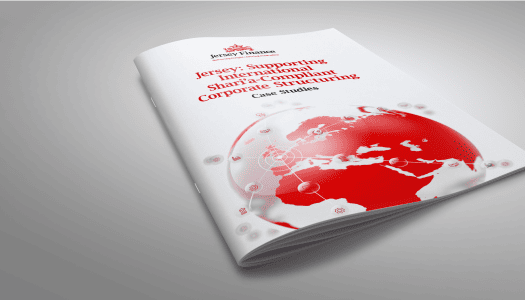The GCC was, generally, very quick to react when early signs of the coronavirus appeared in the region, with a range of restrictions being introduced almost immediately as the first infections were detected.
Bahrain arguably was at the forefront of this battle, acting decisively and compassionately in tackling the virus infection head on. However, each of the GCC countries have taken robust – and financially costly – measures to ensure that their citizens and residents have been safeguarded. Travel restrictions and cancellations, curfews, lock-downs and social distancing have been some of the steps that each country took.
In the Kingdom of Saudi Arabia, for example, malls, restaurants, coffee shops and public parks and gardens have been shut; in the UAE, travel into and outside the Emirates was completely restricted to rescue flights only; and interestingly, the Central Bank of Bahrain restricted lenders from freezing accounts of customers who have either lost their jobs or retired from employment in a bid to mitigate the economic impact of the coronavirus.
The region has also seen governments introduce a range of fiscal and monetary measures to support businesses through these challenging times. For example, for banks, governments have reduced liquidity ratios, reduced interest rates, put a moratorium on loan defaults by corporates, encouraged banks to renegotiate and refinance corporates and provided financial support to help with this.
An US$18.7 billion private sector support package was announced in Saudi Arabia, Bahrain’s government is implementing a US$11.4 billion economic stimulus package to support citizens and businesses – almost 30% of Bahrain’s annual GDP; authorities in the UAE have announced about US$7.2 billion in fiscal measures, whilst the Central Bank of the UAE has announced $70 billion package of measures; and the Central Bank of Oman announced a set of policy measures to support the financial sector, estimating its impact in terms of additional liquidity at US$20.8 billion.
Easing of restrictions
Now, GCC countries are starting to look at ways to gradually lift restrictions and re-start their economies – but progress is unhurried and considered. If need be, countries are prepared to reintroduce lock-downs, curfews and other restrictions should infections go up, as we have seen in Kuwait.
In Saudi Arabia, the authorities have ordered a partial lifting of the curfew and malls, wholesale and retail shops have been allowed to reopen. In Oman the government has discussed proposals to reopen some business activities and commercial activities. And in the UAE, the authorities have begun to gradually reopen shopping centres and other business, with most running at 30% capacity and with plans to increase this gradually.
The need to kick-start the GCC economies is clear – the fallout of the restrictions resulting from the pandemic has had a huge impact on oil prices, amplifying the urgency to get economies running again, be it in a controlled way. The impact on China-GCC trade in particular could hit the region hard – in February this year, oil demand from China fell substantially, with consumption decreasing by 20%. We are seeing the fall in demand played out in downward fluctuations in international oil benchmarks.
Country leaders are having to put in place measures to tackle this in tandem with the medical response to COVID-19. The cost of providing emergency COVID support, both in terms of direct healthcare related but also indirect fiscal and economic support to businesses and people, has been high, putting pressure on the national budgets of all governments, including in the GCC.
The desire to ensure that economic activity begins its recovery to pre-COVID levels, particularly as the GCC governments have been relatively more successful in controlling infection rates when compared to other regions, has resulted in the recent drive to reopening of local economies.
Proactive
Recognising these challenges and the rapidly evolving situation globally, including in the GCC, Jersey has been proactive in taking steps to support clients and partners in the region. The industry has come together quickly with the government and regulator, the Jersey Financial Services Commission, to ensure that business can continue despite the challenges posed by the current environment.
Measures taken by Jersey have helped ensure that, as far as possible, it is business as usual for advisers in Jersey with GCC clients. In fact, this resilience of Jersey’s finance industry is proving to be a positive differentiator.
From a regulatory perspective meanwhile, the Jersey Registry has been able to continue to incorporate new entities, whilst the decision of the Jersey authorities to relax economic substance rules at an early stage has given firms the ability to ensure compliance by using technology to hold virtual board meetings.
In addition, new legislation brought in last month has enabled Jersey wills to be signed and witnessed via video link, whilst we are also seeing more Jersey businesses put in place secure platforms for enabling electronic signatures – helping clients transact remotely.
Our experience in the GCC is that families appreciate the joined-up forward-thinking and level of high quality support Jersey is demonstrating, to help them navigate these tricky times, ensure compliance with regulations and keep an eye on their long-term objectives. This strategic collaboration at a time of global crisis once again demonstrates the strength of the tried, tested and trusted partnership between GCC based families and businesses, and their Jersey based partners.
Succession Planning
All this is important because clients in the GCC, although being focused on navigating the complex fallout of the COVID-19 pandemic, also have an eye firmly fixed on the longer-term.
In particular, family succession planning remains a key issue. For some time, GCC families have been increasingly focused on establishing robust succession plans – family businesses represent 80-90% of commerce in the GCC, yet only 25% of family businesses have an effective wealth transfer strategy and a legally applicable succession plan in place.
The current scenario has brought this issue further into focus, as families wake up to the importance of future-proofing themselves against widespread market disruption. The current pandemic necessitates that family businesses take stock, review and stress-test existing structures.
Against this backdrop, we anticipate that over the coming months we will see succession planning continuing to rise up the agenda as founders and patriarchs look to have detailed conversations about the next generation. In that light, partner jurisdictions that can offer stability, certainty, high levels of governance, robust structures and superior service quality will be well placed to meet this need – and Jersey ticks those boxes.
The measures Jersey has introduced in response to the current crisis, through close cooperation between industry, government and regulator, is enabling it to continue to support clients in the GCC through a hugely challenging short to medium term. But our inherent strengths as a jurisdiction are also giving Jersey the edge in continuing to support the growing focus on succession planning we are anticipating in the region over the coming months.
Jersey Finance’s team in the region continues to engage with stakeholders on the ground, as we have been doing throughout the crisis, providing a seamless bridge between Jersey and the GCC. We are proud to work with families and businesses as they try to re-emerge from this crisis stronger, wiser and with the passion and drive to continue to be successful and take their rightful place on the global stage.
Please do get in touch with Faizal should you have any questions – contact details below.





